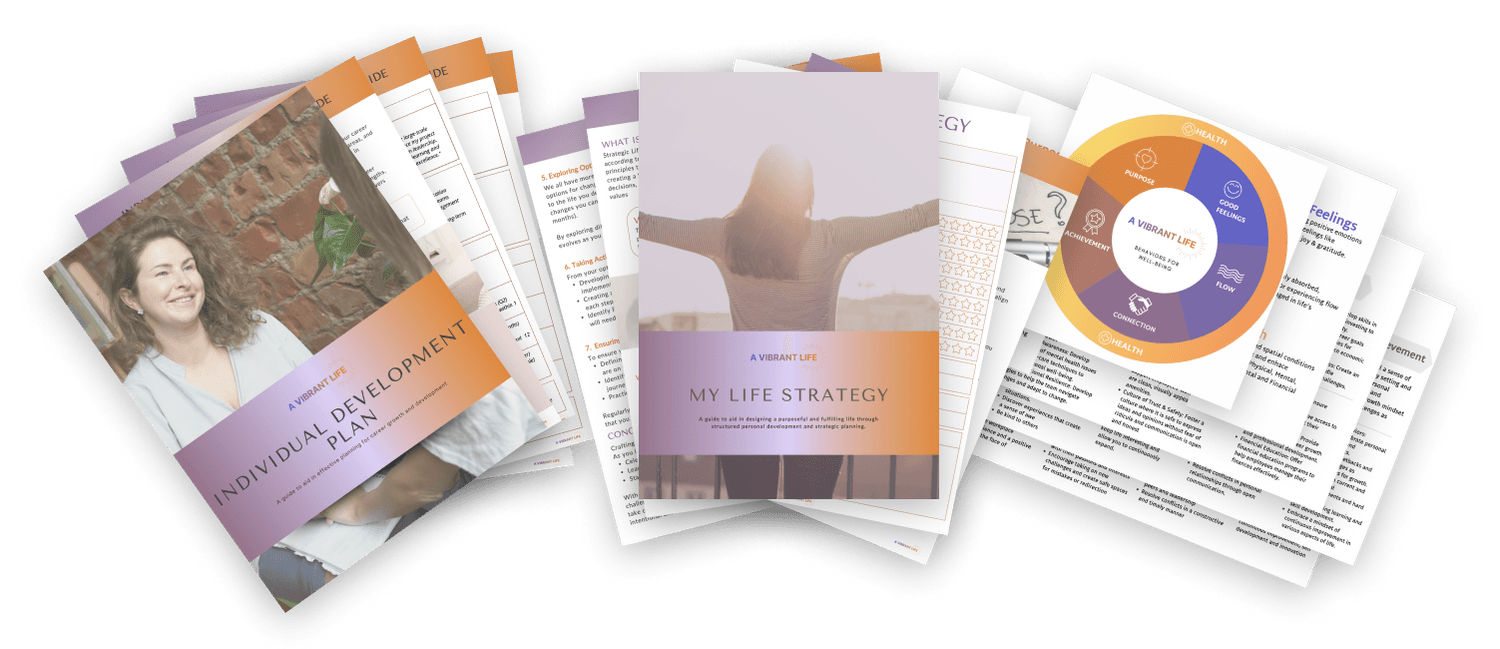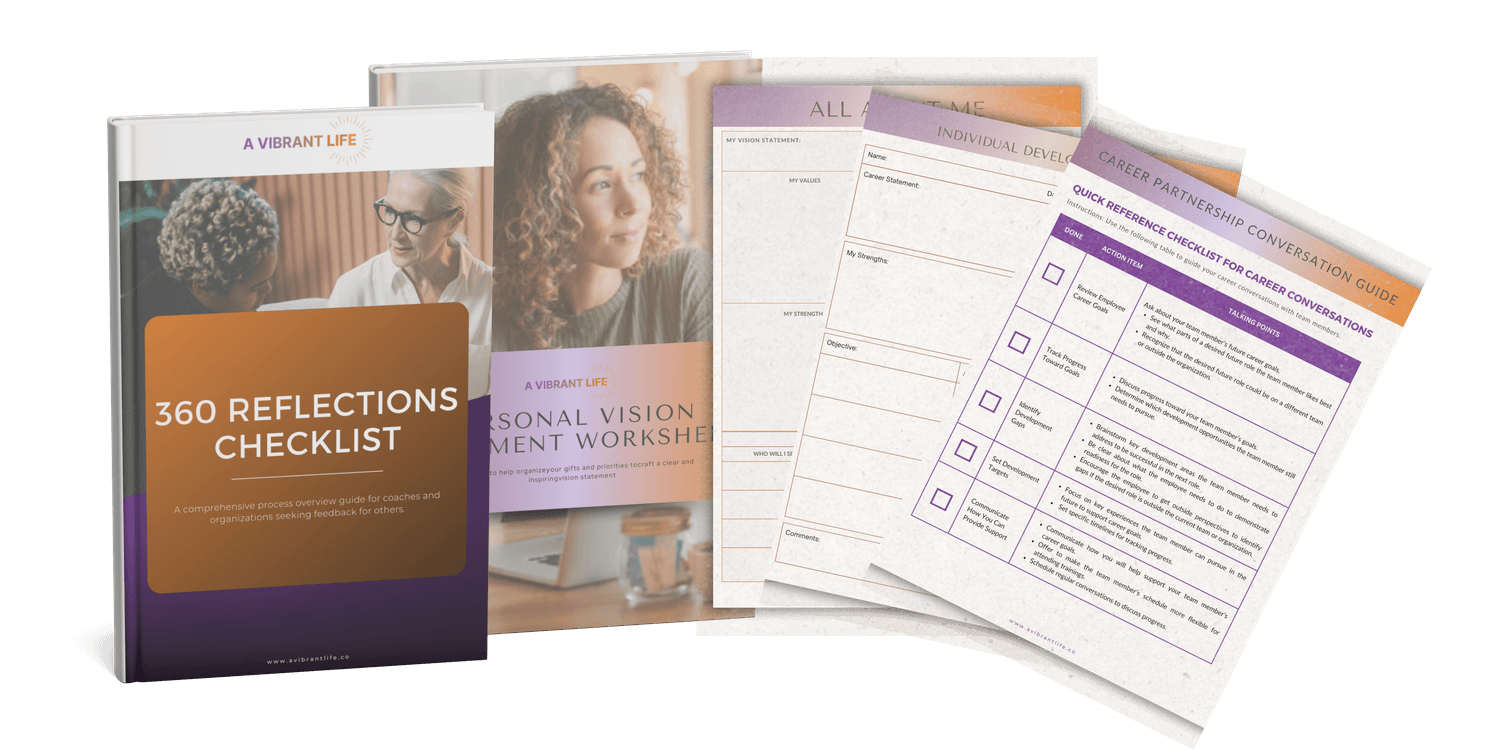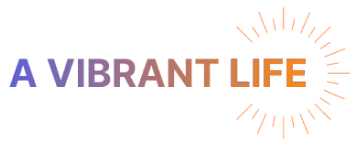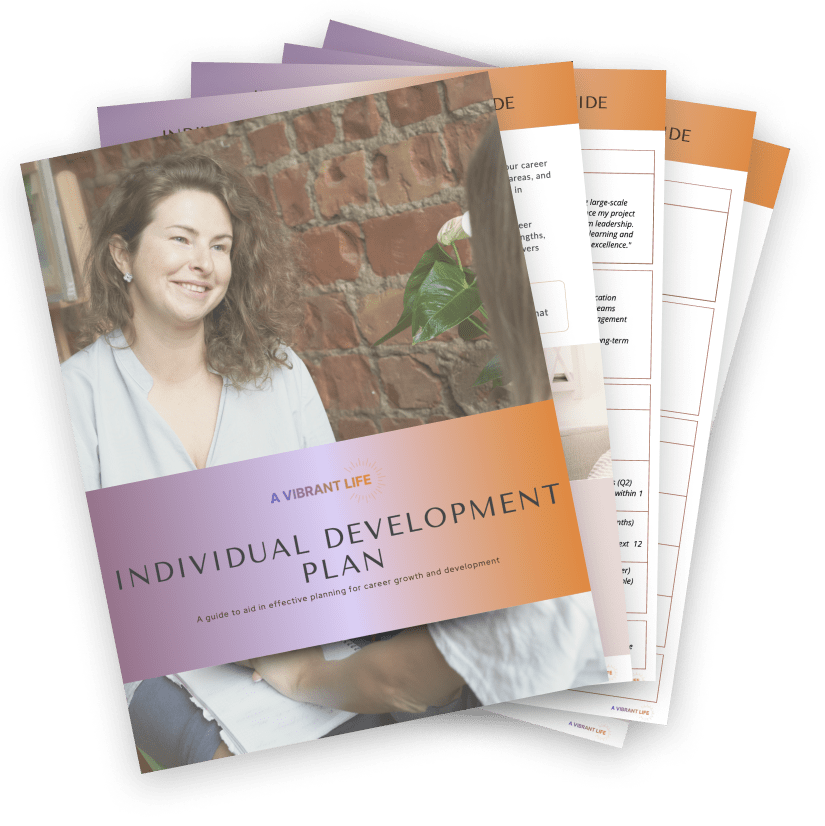Growing Your Career: Why You Need an Individual Development Plan
Introduction
An Individual Development Plan (IDP) is a tool for anyone who wants to grow, whether you're an office worker, entrepreneur, freelancer, student, or simply someone looking to improve. If you are supporting someone in their career journey or seeking support for yourself, this article will help readers understand what an Individual Development Plan is, why it matters, and how one can be personalized to reach long-term career aspirations.
Understanding Individual Development Plans
An IDP is not about dreaming up unrealistic goals or following someone else's path. Instead, it's about taking an honest look at yourself, your aspirations, and your future. You'll think about what you're good at, what you could improve, and what steps you need to take to reach your career goals.
The key parts of an Individual Development Plan are:
Career Statement: This statement describes your ultimate career ambition. Think of it as your career vision statement.
Goals: Specific milestones you want to achieve in your career. These can be short-term objectives or long-term aspirations.
Strengths: What you're naturally good at. These are the skills and qualities that give you an edge.
Areas for improvement: Skills or qualities related to your goals that you need to develop further. These are opportunities for growth, not weaknesses.
Action steps: Specific things you'll do to reach your goals. This is your concrete plan of action.
Creating an Individual Development Plan isn't about pointing out your flaws or setting impossible standards. It's about understanding yourself better so you can make the most of your talents and improve where it counts.
Think of it like planning a road trip. You need to know your starting point, your destination, and the route you'll take to get there. Your Individual Development Plan is just that – but for your career journey.
A good Individual Development Plan is:
Personalized: It reflects your unique situation, values, and aspirations.
Flexible: It can be adjusted as your circumstances or goals change.
Actionable: It includes concrete steps you can take, not just vague intentions.
Holistic: It’s realistic, considering all aspects of your life.
Benefits of Creating an Individual Development Plan
Now you might be wondering, "Okay, this sounds nice, but will it really make a difference?" Let's talk about how an Individual Development Plan can change things for you.
Self-discovery and awareness
Have you ever been asked, "What's your biggest strength?" and drawn a blank? Or maybe you've faced a challenge and weren't sure why it was so tough for you? An Individual Development Plan helps you figure these things out.
When you take the time to think about what you're good at and what you struggle with, you start to understand yourself better. Self-awareness helps you:
Play to your strengths: When you know what you're great at, you can look for ways to use and expand those skills more often.
Improve where it matters: Instead of trying to be perfect at everything, you can focus on improving the skills that will really make a difference in your life or career.
Focused growth and goal alignment
With an Individual Development Plan, you're growing with purpose. You're learning new skills, getting better at what you do, and probably enjoying your journey more. This usually leads to better performance, whether that's in your job, your business, or your projects.
Since you're clear about your own goals, you start to see how they fit into your bigger life picture. This alignment can make your efforts feel more meaningful and help you understand how each step you take is contributing to your larger life goals.
Increased motivation and resilience
Having a clear plan gives you motivation. When you know where you're headed and why, it's easier to stay committed, even when things get tough. Plus, tracking your progress gives you a sense of accomplishment, boosting your confidence and resilience.
Better decision-making
An Individual Development Plan acts as a filter for opportunities. When you're clear about your goals and values, it becomes easier to say "yes" to the right opportunities and "no" to distractions.
"Having a clear plan gives you motivation. When you know where you're headed and why, it's easier to stay committed, even when things get tough."
Achieve your career goals with a personalized development plan.
Creating Your Individual Development Plan: Step by Step
Ready to create your own Individual Development Plan? Let's break it down into manageable steps.
1. Craft a compelling career statement: Find your why
Start by asking yourself why you work everyday. How do your contributions help to serve others? A key factor in overall happiness and life satisfaction is knowing you are a part of something bigger and greater than yourself. Take time to understand what that is for you and how you believe your contributions matter.
2. Self-assessment: Identify strengths and areas for improvement
Take an honest look at yourself. What are you naturally good at? What do others often compliment you on? These are likely your strengths. Then, think about areas where you often struggle or tasks you tend to avoid. These could be your growth areas.
Try these exercises:
Reflect on your past successes. What skills contributed to those wins?
Complete a 360 assessment and ask trusted friends or colleagues for feedback. Sometimes others see strengths in us that we overlook.
Take a personality assessment or skills test for additional insights.
Remember, this isn't about being hard on yourself. It's about identifying opportunities to grow and become even better at what you do. Think about tasks you often procrastinate on or areas where you frequently face challenges. These could be your growth areas.
3. Set clear, achievable goals
Now that you know where you stand, it's time to look ahead. What do you want to achieve? Consider your career statement and think about relevant short-term goals (things you want to accomplish in the next few weeks or months) and long-term goals (your bigger aspirations for the years ahead).
Make your goals SMART:
Specific: Clear and well-defined
Measurable: You can track your progress
Achievable: Challenging but possible
Relevant: Aligned with your broader aspirations
Time-bound: Has a deadline
For example, instead of "Get better at public speaking," a SMART goal might be "Give a 10-minute presentation at the company's quarterly meeting in 3 months."
4. Crafting an action plan
This is where you map out the steps you'll take to achieve your goals. Break each goal down into smaller, manageable tasks. What specific actions will you take? What resources do you need? Who can help you?
For each goal, consider:
What skills do you need to develop?
What knowledge do you need to acquire?
What habits do you need to form or break?
What resources (time, money, support) do you need?
5. Review and adjust
Your Individual Development Plan isn't set in stone. Life changes, and your plan should too. Set regular intervals – maybe every month or quarter – to review your progress. Are you on track? Do you need to adjust your goals or action steps?
This regular review helps you stay accountable and allows you to celebrate your progress along the way. It's also an opportunity to reflect on what's working well and what might need to change.
Adapting Your Plan to Different Life Stages and Careers
Making the Most of Your Plan
Stay motivated: Remember why you started. Connect your daily actions to your bigger goals. Visualize your success and how it will feel to achieve your goals.
Embrace challenges: See obstacles as opportunities to learn and grow. Every setback is a chance to develop resilience and problem-solving skills.
Be flexible: If something isn't working, don't be afraid to adjust your approach. Flexibility is key to long-term success.
Celebrate small wins: Acknowledge your progress, no matter how small. These celebrations boost your motivation and reinforce positive habits.
Keep learning: Stay curious and open to new ideas and experiences. Read books, attend workshops, or find a mentor in areas you want to develop.
Create accountability: Share your goals with a trusted friend or join a group of like-minded individuals. External accountability can be a powerful motivator.
Practice self-compassion: Remember that growth is a process. Be kind to yourself when things don't go as planned.
Conclusion

About Us
We are a community of practitioners & experts, passionate about empowering individuals & organizations with tools for growth, well-being, and transformation.

Explore Our Catalog of Transformative Products
Discover our range of expertly crafted products designed to help you achieve your goals and live a more vibrant life. Whether you're looking to advance your career, find balance, or create a thriving environment, our catalog has something for everyone.

Discover Our Free Resources
Access our collection of valuable free tools, guides, and resources designed to support your personal growth journey. From starter templates to educational content, we're here to help you get started without any cost.
GET EXCLUSIVE ACCESS
Collaborate and Grow with Our HR and Coaching Community
Get exclusive content and resources designed to help you thrive both personally and professionally. Become a member of the A Vibrant Life community and gain access to expert insights, practical strategies, and a supportive network of like-minded individuals.
Your privacy is important to us. We promise to keep your email safe and never spam.

Ready to take the next step towards a vibrant life and fulfilling career?
Explore our transformative solutions tailored to meet you where you are and guide you to where you want to be.








